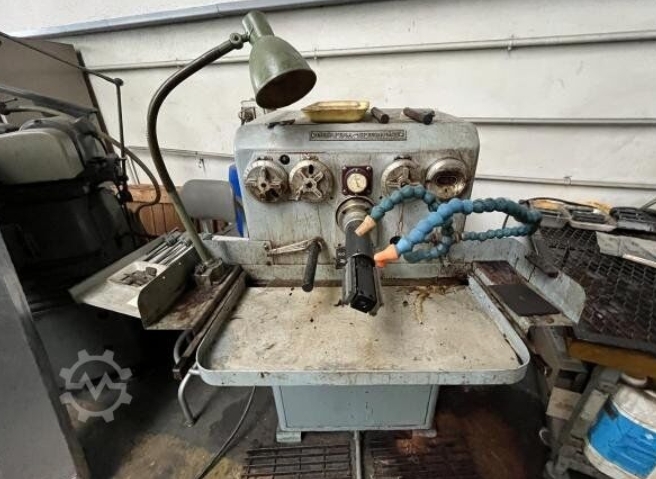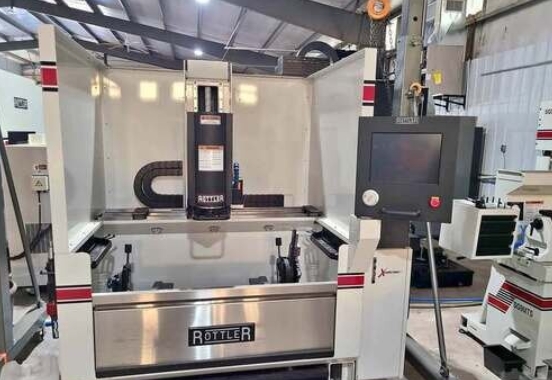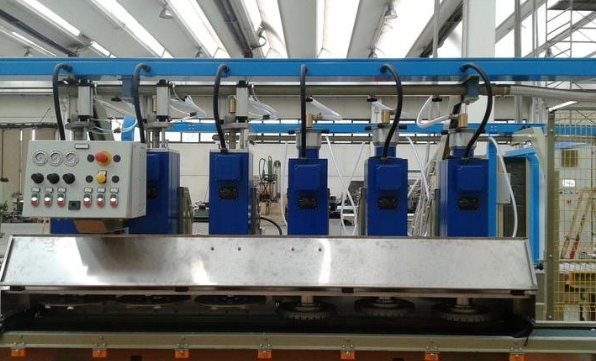Content Menu
● Introduction to PVC Wire Extrusion Machinery
● Core Components of PVC Wire Extrusion Machinery
● Key Features to Look for in PVC Wire Extrusion Machinery
>> 1. Extruder Design and Configuration
>> 2. Advanced Heating and Temperature Control
>> 3. High-Precision Die and Mould
>> 4. Robust Control System
>> 5. Efficient Haul-Off and Cutting Systems
>> 6. Production Capacity and Scalability
>> 7. Energy Efficiency
>> 8. Material Handling and Compatibility
>> 9. Ease of Operation and Maintenance
>> 10. Quality Assurance and Certification
● Types of PVC Wire Extrusion Machines
● Factors to Consider When Selecting PVC Wire Extrusion Machinery
● Common Problems and Troubleshooting in PVC Wire Extrusion
● Enhancing Efficiency and Quality in Wire Production
● Conclusion
● FAQ
>> 1. What is the difference between single-screw and twin-screw PVC wire extrusion machinery?
>> 2. How does temperature control impact the quality of extruded PVC wires?
>> 3. What are the most common problems in PVC wire extrusion, and how can they be solved?
>> 4. What factors should I consider when choosing PVC wire extrusion machinery for my factory?
>> 5. How does automation in PVC wire extrusion machinery enhance production efficiency?
● Citations:
PVC wire extrusion machinery is the backbone of modern cable and wire manufacturing, providing the precision, efficiency, and reliability required to meet today's demanding electrical and industrial standards. Selecting the right PVC wire extrusion machinery is a complex decision that impacts product quality, operational efficiency, and long-term profitability. This comprehensive guide explores the essential features to consider, the core components of these machines, their operational principles, and practical advice for making the best investment for your production needs.

Introduction to PVC Wire Extrusion Machinery
Polyvinyl chloride (PVC) wire extrusion machinery is a specialized class of equipment used to coat electrical wires and cables with a protective PVC layer. This process is essential for providing electrical insulation, mechanical strength, and resistance to environmental factors, making it a critical step in the production of cables for construction, telecommunications, automotive, and consumer electronics industries[2][4].
The extrusion process involves melting PVC material and applying it uniformly around a metal conductor (typically copper or aluminum), which is then cooled and cut to the desired length. The quality of this process directly affects the performance, safety, and durability of the finished cable.
Core Components of PVC Wire Extrusion Machinery
Understanding the main components of PVC wire extrusion machinery is fundamental to evaluating its capabilities and suitability for your production line. A typical PVC wire extrusion line consists of the following elements[1][2][4][5]:
- Hopper/Feeder: Where raw PVC pellets or powder are loaded.
- Extruder (Screw and Barrel): The heart of the machine, where PVC is melted and conveyed.
- Heating System: Multiple zones along the barrel and die to precisely control melting temperature.
- Die and Mould: Shapes the molten PVC into the desired profile around the conductor.
- Calibration Table: Ensures the extruded PVC maintains correct dimensions.
- Cooling System: Rapidly cools the extruded cable to solidify the PVC coating.
- Haul-off (Capstan/Caterpillar): Pulls the cable through the line at a consistent speed.
- Cutting Machine: Cuts the finished cable to specified lengths.
- Take-up Stand: Collects the finished cable for storage or further processing.
- Control System: Monitors and regulates all aspects of the extrusion process.
Each component plays a vital role in ensuring the efficiency, precision, and quality of the extrusion process.
Key Features to Look for in PVC Wire Extrusion Machinery
When investing in PVC wire extrusion machinery, several key features distinguish high-quality, reliable machines from basic or outdated models. Below are the most critical features to evaluate:
1. Extruder Design and Configuration
- Single-Screw vs. Twin-Screw Extruders: Single-screw extruders are common for standard PVC applications, offering simplicity and cost-effectiveness. Twin-screw extruders provide superior mixing and homogenization, making them suitable for complex formulations or higher quality requirements[1][2][5].
- Screw Design: The geometry of the screw affects plasticizing efficiency, throughput, and the quality of the melt.
- Barrel Construction: Should be abrasion-resistant and capable of maintaining uniform heat distribution.
2. Advanced Heating and Temperature Control
- Multiple Heating Zones: Allow precise control over the melting process, preventing degradation or incomplete melting of PVC[1][2][5].
- Digital Temperature Controllers: Ensure each zone maintains the set temperature, which is crucial for consistent product quality.
- Efficient Cooling System: Rapid cooling (often via water baths) helps the PVC retain its shape and prevents deformation.
3. High-Precision Die and Mould
- Customizable Dies: Ability to switch dies for different cable sizes and profiles increases the versatility of the machine.
- Quality of Mould Material: High-grade steel or alloys ensure longevity and dimensional stability.
4. Robust Control System
- PLC-Based Automation: Modern machines feature programmable logic controllers (PLC) for real-time monitoring and adjustment of parameters like temperature, pressure, and speed[1][4].
- Human-Machine Interface (HMI): Touchscreen panels make operation intuitive and allow quick recipe changes for different products.
- Safety Interlocks and Alarms: Protect operators and equipment from malfunctions.
5. Efficient Haul-Off and Cutting Systems
- Synchronized Haul-Off: Maintains constant tension and speed, critical for uniform coating thickness.
- Precision Cutting: Automated cutters synchronized with the line speed ensure accurate lengths and clean edges, reducing the need for post-processing[1][2].
6. Production Capacity and Scalability
- Output Rate: Measured in kg/h or meters/min, the machine's capacity should match your production goals[4][5].
- Expandable Lines: Some systems allow for the addition of extra extruders or dies to increase output or produce multi-layer cables.
7. Energy Efficiency
- Low Power Consumption: Modern designs incorporate energy-saving motors and optimized heating systems.
- Heat Recovery: Some advanced machines recycle waste heat, further reducing operational costs.
8. Material Handling and Compatibility
- Versatility: Ability to process various PVC formulations, including flame-retardant or UV-resistant grades.
- Automatic Feeding and Dosing: Reduces manual intervention and ensures consistent material flow.
9. Ease of Operation and Maintenance
- User-Friendly Interface: Simplifies training and daily operation.
- Quick-Change Components: Minimize downtime during product changeovers.
- Accessible Design: Facilitates cleaning and routine maintenance.
10. Quality Assurance and Certification
- Compliance with Standards: Machines should be capable of producing cables that meet international standards (e.g., IEC, UL).
- Integrated Quality Control: Inline measurement systems for diameter, eccentricity, and surface defects improve consistency.

Types of PVC Wire Extrusion Machines
Different production needs require different types of PVC wire extrusion machinery. Understanding the main types will help you choose the right equipment for your application[4][5]:
| Type of Extruder | Key Features | Best For |
| Single-Screw Extruder | Simple design, cost-effective, easy to operate | Standard PVC wires and cables |
| Twin-Screw Extruder | Superior mixing, higher output, complex blends | High-quality or specialty cables |
| Multiple-Die Extruder | Simultaneous production of multiple strands | High-volume production, multi-core cables |
| Co-Extrusion Lines | Multiple layers/colors in one pass | Dual/triple-layer insulation or sheathing |
Factors to Consider When Selecting PVC Wire Extrusion Machinery
Choosing the right PVC wire extrusion machinery goes beyond just technical specifications. Consider the following factors to ensure a good investment[4][5]:
- Production Scale: Match machine capacity to your daily or monthly output targets.
- Material Compatibility: Ensure the machine can handle your specific PVC formulations or additives.
- Cost (Initial and Operating): Balance upfront investment with long-term maintenance and energy costs.
- Manufacturer Reputation: Opt for established brands with strong after-sales support and spare parts availability.
- Customization: Some manufacturers offer tailored solutions for unique cable profiles or production requirements.
- Certifications and Compliance: Ensure the equipment meets relevant safety and quality standards.
Common Problems and Troubleshooting in PVC Wire Extrusion
Even with advanced PVC wire extrusion machinery, operational issues can arise. Understanding common problems and their solutions helps maintain consistent production quality[3][4]:
- Rough Surface: Often caused by low temperature or insufficient PVC baking. Adjust temperature and ensure proper preheating.
- Bubbles on Surface: High extrusion temperature or inadequate PVC drying can introduce air bubbles. Lower temperature and increase baking time.
- Uneven Coating: May result from incorrect temperature settings or haul-off speed. Fine-tune process parameters.
- Center Eccentricity: Caused by improper die alignment or incorrect mold aperture. Realign or replace molds as needed.
- Shrinkage or Melting Loss: Inadequate preheating or low head pressure. Adjust preheater and use pressurized molds.
- Wire Breakage: Excessive tension or poor straightening. Adjust capstan and ensure wire is properly aligned.
Routine maintenance and operator training are essential for minimizing downtime and ensuring product quality.
Enhancing Efficiency and Quality in Wire Production
Investing in high-quality PVC wire extrusion machinery pays dividends in several ways[4][5]:
- Increased Throughput: Automated and high-speed lines boost production rates.
- Consistent Quality: Precise control systems ensure uniform insulation thickness and surface finish.
- Reduced Waste: Inline monitoring and automated adjustments minimize material loss.
- Lower Labor Costs: Automation reduces manual intervention and training requirements.
- Versatility: Ability to produce a wide range of cable types and sizes with quick changeovers.
Conclusion
Selecting the right PVC wire extrusion machinery is a strategic decision that directly impacts the quality, efficiency, and profitability of your cable manufacturing operations. By focusing on key features such as advanced extruder design, precise temperature control, robust automation, and ease of maintenance, you can ensure your production line delivers consistent, high-quality results. Consider your production scale, material requirements, and long-term operational costs when choosing equipment, and always prioritize machines from reputable manufacturers with strong technical support.

FAQ
1. What is the difference between single-screw and twin-screw PVC wire extrusion machinery?
Single-screw extruders use one rotating screw to melt and convey PVC material, offering simplicity and cost-effectiveness for standard applications. Twin-screw extruders have two intermeshing screws, providing better mixing, higher output, and are ideal for complex formulations or specialty cables[2][4][5].
2. How does temperature control impact the quality of extruded PVC wires?
Precise temperature control ensures the PVC melts uniformly without degrading, directly affecting the consistency, surface finish, and electrical properties of the final cable. Multiple heating zones and digital controllers are essential for maintaining optimal processing conditions[1][2][5].
3. What are the most common problems in PVC wire extrusion, and how can they be solved?
Common issues include rough surfaces (due to low temperature), bubbles (from high temperature or poor drying), uneven coating (from incorrect settings), and wire breakage (from excessive tension). Solutions involve adjusting temperatures, improving material preheating, and regular maintenance of machine components[3][4].
4. What factors should I consider when choosing PVC wire extrusion machinery for my factory?
Key considerations include production capacity, material compatibility, cost (initial and operational), manufacturer reputation, customization options, and compliance with industry standards. Assess your specific needs and seek equipment that offers scalability and strong technical support[4][5].
5. How does automation in PVC wire extrusion machinery enhance production efficiency?
Automation, via PLCs and HMIs, allows for real-time monitoring and adjustment of process parameters, reduces manual intervention, ensures consistent product quality, and minimizes downtime due to operator errors or machine faults[1][4].
Citations:
[1] https://www.jwellmachine.com/what-are-the-key-features-of-a-pvc-cable-channel-extrusion-line/
[2] https://jieyatwinscrew.com/blog/pvc-extruder-machine-everything-you-need-to-know/
[3] https://www.linttop.com/technology-news/common-problems-and-solutions-of-cable-extruding-machine-in-production/
[4] https://jieyatwinscrew.com/extruder-applications/cable-extruder/pvc-cable-extruder-machine/
[5] https://www.alibaba.com/showroom/pvc-cable-extruder-machine.html
[6] https://gtcablemachine.en.made-in-china.com/product/zZwfHeOArhcp/China-PVC-Extrusion-Wire-Cable-Making-Machine.html
[7] https://hbchuangzhan.en.made-in-china.com/product/aAlYieBKZvVk/China-CZ65-35-High-Efficient-PVC-Material-Insulated-Wire-and-Cable-High-Quality-Cable-Extrusion-Machine.html
[8] https://www.supermacindia.com/insulation-lines-for-thhn-cables.html
[9] https://wellion.en.made-in-china.com/product/jvkJSgqMfiVU/China-PVC-Wire-Extrusion-Equipment.html
[10] https://www.cowinextrusion.com/all-about-plastic-extrusion-and-helpful-tips-for-buying-extruder-machinery/
[11] https://www.jwellextrusions.com/the-characteristics-of-pvc-pipe-extrusion-production-line-and-the-formation-of-extrusion-touch.html
[12] https://www.wirebunchingmachine.com/quality-7965031-pvc-extrusion-equipment
[13] https://www.indiamart.com/proddetail/pvc-cable-extruder-machine-18503960791.html
[14] https://www.hmel.in/assets/pdf/technical_guide_to_wire_and_cable_extrusion_process_&_polysure_products-final_small.pdf
[15] https://www.indiamart.com/proddetail/pvc-cable-extruder-line-70-50mm-2853099966055.html
[16] https://longshineguoji.en.made-in-china.com/product/NsImZcSVwbWi/China-PVC-Wire-And-Cables-Extrusion-Machine-Plastic-Extruder.html
[17] https://omnexus.specialchem.com/selection-guide/polyvinyl-chloride-pvc-plastic
[18] https://www.wirecablemachinehz.com/sale-42912469-high-quality-pvc-house-wire-extrusion-machine-low-voltage-cable-production-line-from-china.html
[19] https://www.tradeindia.com/products/pvc-steel-wire-reinforced-pipe-extrusion-line-5616090.html
[20] https://www.justdial.com/india/PVC-Extruder
[21] https://www.linkedin.com/pulse/common-issues-pvc-cable-extrusion-robyn-gai-aw8lc
[22] https://ud-machine.com/blog/cable-extrusion-process/
[23] https://www.jwellmachine.com/pvc-cable-channel-extrusion-line/
[24] https://www.frekansmakina.com.tr/en/understanding-the-cable-extrusion-process/
[25] https://m.zmscable.com/new/Wire-and-cable-extrusion-defect-problem-solution
[26] https://www.wirecable.in/fundamentals-of-extrusion-technology/
[27] https://www.handingmachinery.com/new_detail/Troubleshooting-Common-Cable-Extrusion-Issues.html
[28] https://www.linkedin.com/pulse/working-procedures-pvc-extrusion-machine-andrew-liao
[29] https://www.electrical-cable.com/news-exhibition/company-news/2009.html
[30] http://www.longtermmachinery.com/High-Speed-PVC-Wire-Coating-Machine-Wire-Extrusion-Machine-Cable-Wire-Extrusion-Cable-Extruder-pd45092660.html
[31] https://www.chinacabletec.com/new_detail/nid/63783.html
[32] https://www.cnsuntech.com/sale-13789711-80m-min-pvc-cable-extruder-machine.html
[33] https://www.friendplasticmachine.com/sale-9966214-customized-plastic-profile-extrusion-line-pvc-extruder-machine-for-cable.html
[34] https://www.jwellextrusions.com/function-introduction-of-pvc-pipe-extrusion-line.html
[35] https://www.jwellextrusions.com/common-problems-and-solutions-of-pe-pipe-extrusion-line.html
[36] https://www.accextrusion.com/news/common-faults-and-solutions-of-plastic-pipe-extrusion-line/






















